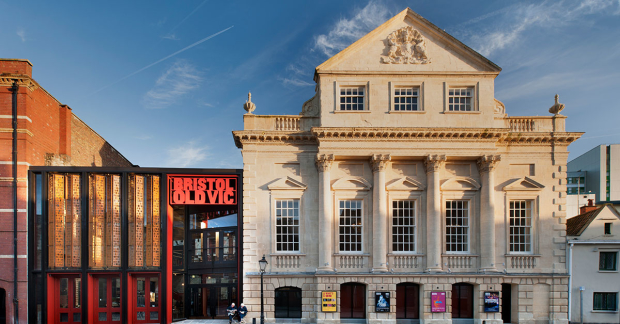Wise Children to stage Malory Towers as Bristol Old Vic announces its next season
The latest season at the Bristol Old Vic was revealed last night

© Philip Vile
The second production from Emma Rice's new company Wise Children will be Malory Towers, it has been revealed.
Tom Morris, artistic director of the Bristol Old Vic, announced last night that the show would be a part of the theatre's upcoming new season, with dates and more details yet to be announced. Malory Towers was originally a series of children's books by Enid Blyton about a boarding school which relocated to the seaside during the war.
Elsewhere in the season, which the theatre is calling 'The Power of Imagination', there will be appearances from We're Going on a Bear Hunt, Sally Cookson's iconic adaptation in July, Kneehigh's production of Dead Dog in a Suitcase will return between 6 and 13 July and Amelie the Musical, starring Audrey Brisson, will tour to the theatre between 16 and 20 July.
Company Le Navet Bete make their Bristol Old Vic debut with The Three Musketeers between 22 and 24 August, while the theatre's hit adaptation of A Christmas Carol returns from 28 November 2019 to 12 Jan 2020. For younger audiences, Boing! also returns to the theatre between 29 November and 5 Jan.
As previously announced Pride and Prejudice (*Sort of) will also tour to the Old Vic in September, while Extraordinary Wall of Silence, created by Ad Infinitum, will arrive in the autumn. A new production of Cyrano, directed by Morris, will run between 12 October and 9 November.
Following on from the theatre's Year of Change, in which the new building re-opened, the space is continuing to look at the role of regional theatre in the UK. The theatre continues to build on the work done in 2018 with focus still on its developing work initiative and talent pipeline Bristol Ferment, its free festival Springboard on 6 April, Open Stage 2019 and Headlong Futures, where Headlong Theatre and the venue embed practitioners in communities and use theatre to ask questions about their lives.
Morris said: "As regional theatres all over the country are fighting with such imagination to combat declining subsidy and deep local authority cuts, it is more important than ever to examine what the role of a regional producing theatre might be."





















